
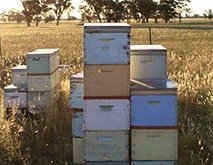
Western Australians’ affinity with beekeeping continues to grow, with the number of registered beekeepers across the State surpassing the 3000 mark this week. Department of Primary Industries and Regional Development records show the number of registered beekeepers have grown from 660 in 2010 to 3005 beekeepers caring for more than 45,860 beehives. Department livestock biosecurity director […] Read more
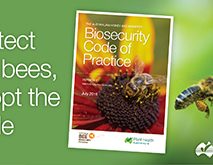
The Australian Honey Bee Industry Biosecurity Code of Practice sets requirements for beekeepers that provide a framework for implementing biosecurity best practices. The Code is part of the National Bee Biosecurity Program and was developed by Australian Honey Bee Industry Council (AHBIC) in collaboration with state and federal governments. Recently, Peter McDonald, the Chair of […] Read more
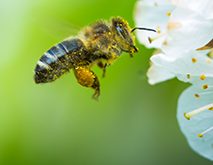
Please take the time to complete the Honey Bee Health Survey 2018. A short survey has been developed to find out how healthy Australian honey bees are, and what pests and diseases might be causing problems for beekeepers. The results from the survey will be used to decide what help beekeepers might need to keep […] Read more
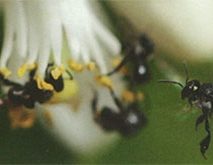
Honeybees are excellent pollinators of many crops, but the burden placed on their health by pests and diseases is heavy. Added to that, the looming threat of a varroa mite incursion makes our reliance on honeybees for pollination decidedly risky. In this context, the Hawkesbury Institute for the Environment at Western Sydney University is heading […] Read more

Commercial beekeepers with more than 50 hives can register for a free online biosecurity course on activities to prevent the spread of pests and diseases in their hives. The Biosecurity for Beekeepers course, which takes about 90 minutes to complete, covers: checking hives for pests and diseases identifying exotic and established pests and diseases of […] Read more
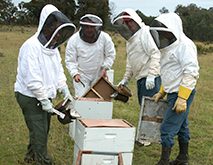
NSW Department of Primary Industries (DPI) has declared American foulbrood (AFB) Awareness Month this October to help keep local bee hives healthy and productive. DPI plant biosecurity prevention and preparedness manager, Chris Anderson, urged beekeepers across the state to look for symptoms of AFB and take prompt action. “If there are signs of AFB, dark […] Read more
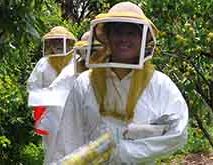
Bee Biosecurity Officers have been busy over the last few months, taking part in Exercise Bee Prepared, as well as compliance and surveillance operations, and going to industry meetings and field days. Encouraging beekeepers to follow best management practices for diseases like American foulbrood continues to be a major focus. The officers are also talking […] Read more

Beekeepers nationally, commercial and hobby, are being urged to adopt the Australian Honey Bee Industry Biosecurity Code of Practice to keep their bees healthy and to safeguard honey bee and pollination dependent industries. Honey production is worth more than $100 million annually, along with sales of beeswax, queen and packaged bees. This is dwarfed by […] Read more

Australia has one of the strongest honey bee surveillance program in the world, with 170 closely monitored beehives at 32 ports across Australia providing an early warning system for exotic bee pests and diseases. In the wake of a recent varroa mite detection in an incoming ship to the Port of Melbourne there is a […] Read more

Agriculture Victoria is urging anyone with unregistered or feral bee hives within a surveillance zone around the Port of Melbourne to contact them. The surveillance zone was established following a detection of varroa mite at the Port last week. Acting Chief Plant Health Officer Nigel Ainsworth said Agriculture Victoria is currently undertaking precautionary surveillance of […] Read more
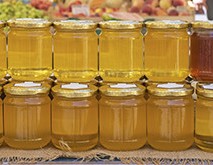
A research project screening Western Australian honey for bioactivity traits that could support health products is uncovering some surprising results. As part of an AgriFutures™ Honey Bee and Pollination Program supported project, researchers from the University of Western Australia, together with the Cooperative Research Centre for Honey Bee Products, are analysing honeys that are native […] Read more
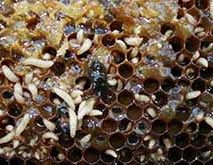
Apiarists are on high alert following a surge in small hive beetle populations due to dry spring conditions and a wet, humid end to summer. First detected in Australia in 2002, small hive beetle (SHB) is now the largest and leading apiary pest in warm, moist locations of eastern Australia. The pest feeds on bee […] Read more
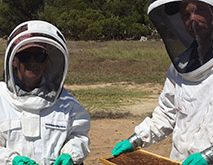
The South Australian honeybee industry is set to follow the latest in biosecurity best practice with changes to the Livestock Regulations 2013 to take effect this month (April). The amendments which come into effect on Thursday 19 April align with the Australian Honey Bee Industry Biosecurity Code of Practice, which has been endorsed nationally and […] Read more
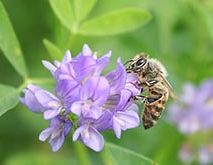
Biosecurity SA is reminding beekeepers to be on the lookout for American foulbrood (AFB), found in hives pollinating lucerne in the Tintinara area. Biosecurity SA’s new Bee Biosecurity Officer Teagan Alexander is working closely with apiarists in the region to ensure no further spread of the disease. Beekeepers and growers seeking further information on AFB […] Read more
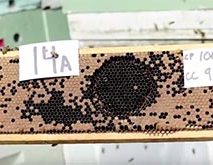
In the latest best practice video developed by the Honey Bee & Pollination Program, one of Australia’s most respected apiarists has encouraged honey producers to adopt rapid hygienic behavior testing in an effort to limit pest and disease incursions. In the fifth episode in the series, Lindsay Bourke from Australian Honey Products in Launceston, Tasmania, […] Read more
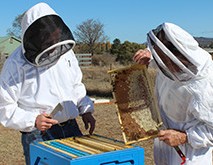
Biosecurity Queensland is asking Townsville residents to keep reporting unusual bees and unmanaged bee colonies. Public assistance is an essential part of the hunt for varroa mite, which was first detected in an Asian honey bee nest at the Port of Townsville in June 2016. “We have had excellent support from local beekeepers and the […] Read more
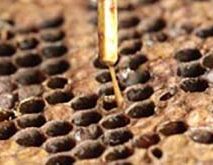
Beekeepers have been urged to look out for discoloured brood and dead larvae, both symptoms of NSW’s most serious brood disease of honey bees, American foulbrood (AFB). The NSW Department of Primary Industries (DPI) today declared October as AFB Awareness Month – a month-long campaign dedicated to educating beekeepers across the state about the fatal and […] Read more
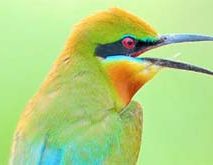
The National Varroa Mite Eradication Program (NVMEP) is seeking public assistance to locate roosts of rainbow bee-eaters in the Townsville area. The program uses a variety of surveillance methods to detect Asian honey bees, one of which relies on the rainbow bee-eater birds, which occur throughout Townsville. As all beekeepers know, bee-eaters love to eat […] Read more
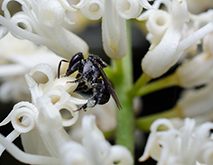
Improving macadamia tree yields by more than 50 per cent could be achieved by alternating varieties in rows and increasing pollinators, new research suggests. For the study – funded by Hort Innovation and Plant & Food Research and the Australian Macadamia Society (AMS) – researchers conducted a trial in a Bundaberg orchard which investigated pollination […] Read more
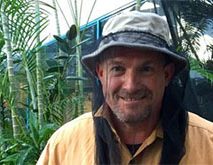
The NSW bee industry will be further protected to minimise the impact of pests and diseases with the appointment of a new Bee Biosecurity Officer based at the Department of Primary Industries (DPI) Tocal College at Paterson. DPI’s Manager of Plant Biosecurity Prevention and Preparedness, Dr Chris Anderson said the new appointment of Rod Bourke […] Read more